Building Operators' Certificate Program
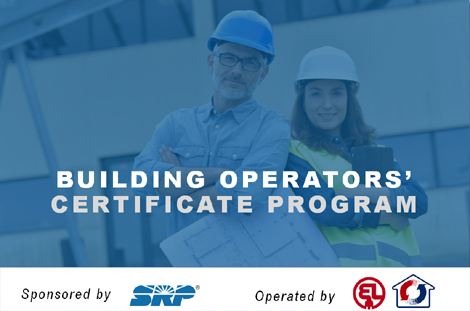
Learn how to become more energy efficient, how to improve the air quality, and how to install the most appropriate lighting. Do you have the correct a/c units for the size of the facility, and are they working properly? Is your building up to code? Find out what it takes and much more when you register for our Building Operators' Program. Our course is unique in that each instructor specializes in the field he teaches.
Download the Current Class Schedule
Click for Details and to Register Online Now
For more information and any additional questions about ELA Electrical Education, please contact the Education Department directly at:
Ph. 602-263-0115 or
Email: education@elaz.org
CERTIFICATE & STANDALONE COURSES
Courses a now being offered a la carte. Participants can register for the full certificate at a reduced price or create a course calendar that fits their schedule by completing standalone courses at their own pace.
Click on blue + sign below for more details
+ FME 101 HVAC Fundamentals in a Commercial/Industrial Facility
Course Description: A discussion of commercial systems, chiller systems, and A/C control systems in a modern industrial setting.
Course Content: A discussion of types of systems and controls working with application sequences, energy efficiency, diagrams and specific HVAC Controls.
* Reviews heating, cooling, and ventilation
* Commercial systems and their applications
* Commercial condensers, evaporators and compressors
* Centrifugal, screw, scroll and reciprocating applications
* Types of chillers and their applications
* A/C Control Systems
* Work with specific systems diagrams
* Chiller Systems
* Specific HVAC Controls
* KW per ton and energy usage
+ FME 102 Airflow Dynamics for the Commercial/Industrial Facility
Course Description: A thorough understanding of airflow dynamics can enable you to uncover and resolve system problems.
Course Content: An overview of what causes most airflow related problems and how they can be prevented.
* Airflow dynamics
* Central air systems
* Airflow systems and components
* Variable speed fans and pumps
* Ventilation requirements for HVAC
* Types of fans
* Airflow testing and instruments
+ FME 103 HVAC Codes and Safety for the Commercial/Industrial Facility
Course Description: A discussion of local and national health, safety, energy, and environmental codes as they relate to the HVAC system in a Commercial/Industrial Facility.
Course Content: An overview of codes, standards and specifications and how they apply in a Commercial/Industrial Facility.
* EPA Codes
* Mechanical Codes
Note: Course fees include a copy of the 2021 International Mechanical Codebook.
+ FME 104 Electrical Codes and Standards for the Commercial/Industrial Facility
Course Description: Electrical, energy management and related codes that facility managers must know.
Course Content: Compliance with the most important maintenance related codes and their application to an energy efficient building.
* 2023 National Electrical Codes
+ FME 106 Electrical Safety for
the Commercial/Industrial Facility
Course Description: A discussion of commercial facility safety practices as it relates to electrical systems.
Course Content: An overview of safety practices related to electricity and how it relates to the Commercial/Industrial Facility.
* Recommended safety practices
* OSHA Codes
Note: Course fees include a copy of the 2023 NFPA 70 National Electrical Codebook.
+ FME 107 Lighting Fundamentals and Efficiency for the Commercial/Industrial Facility
Course Description: A broad-based discussion of lighting fundamentals and efficiency and how they're applied to a Commercial/Industrial Facility.
Course Content: An overview of the Lighting Industry.
* Lighting fixture technology and efficiency
* Applications and Strategies
* Light Source/Efficiency/Common Retrofits
* Lighting maintenance
+ FME 108 Power Quality for the Commercial/Industrial Facility
Course Description: The basics of important, "Need to know" power quality issues in your facility. Learn as the instructor performs a real, hands-on analysis of a large facility.
Course Content: An overview of what causes most Power Quality related problems and how they can be prevented.
* Techniques for identifying PQ symptoms
* Trouble-shooting common problems
+ FME 109 Indoor Air Quality
for the Commercial/Industrial Facility
Course Description: The purpose of this course is to familiarize the attendees with Indoor Air Quality (IAQ) and Indoor Environmental Quality (IEQ).
Course Content: This course will familiarize attendees with common IEQ issue and terminology. Attendees will receive an introduction on how to anticipation, recognition, prevention and responses to common IEQ issues that impact the facilities.
Attendees will receive an:
* Introduction to common contributors to poor IEQ
* Familiarization with the common IEQ terms
* Introduction to broadly applicable prevention, assessment, and response concepts
* Comprehension of the health effects, building consequences and other liabilities associated with poor or mismanaged IEQ
* Acquaintance with example preventative actions, such as controlling outside air, regular HVAC filter replacement, managing pests, addressing water releases, reducing Legionella in water systems, etc
* Understanding of various response actions to IEQ issues such as asbestos releases, sewer line breaks, COVID-19 positive occupants, visible mold growth, odor complaints, sick occupants, Legionellosis outbreaks, chemical releases, etc
+ FME 110 Energy Conservation Techniques
Course Description: The use of energy in commercial buildings and how to identify and prioritize conservation opportunities.
Course Content: An overview of the basics of energy accounting, evaluation of fuel options, operation and maintenance strategies to improve efficiency, and energy management planning techniques.
* Implementing an effective energy management program
* Use of infrared technology to measure thermal losses
* Developing an energy efficiency "checklist" for a facility
* Utility fact sheets that are customized for different facilities and energy end uses
* Sensible retrofits
* Case studies of local facilities
* Building controls
* HVAC maintenance
* Efficient lighting
* New technologies
+ FME 111 Energy Audit
Course Description: The essentials that a building operator should know about how to measure the energy performance of their facilities.
Course Content: An overview of where your facility uses energy and how your facilities' energy use compares to your competition.
* Find out where you spend the most and where the most opportunities for savings exist
* Techniques for studying your energy usage history and downloading your account data into spreadsheets to analyze usage and quickly highlight important trends
* Energy end-use data that shows typical energy breakdowns for different types of facilities
* Essential for operators who manage multiple facilities
+ FME 112 Direct Digital Controls
Course Description: An introduction to the application of Direct Digital Controls (DDC) to operating a building's temperature control system.
Course Content:
* The ability of the system to process data
* Input & output types, transducers, variable frequency drive (VFD) theory, communication protocols (LON & BACnet), programming vs. configuring controllers
* Workstation basics
* How to make the controls act like an Energy Management System (EMS).
* Specific manufacturers will not be covered, only the overall theory of how these systems operate
+ FME 115 Design & Operation of Commercial Chilled Water Systems
What You Can Expect: This class provides an overview of the design and operation of Building Chilled Water Systems including piping system design and unit components..
Piping System Design:
A. Direct & Reverse Return Piping Systems
B. Pipe Sizing
C. Piping Specialties
D. Flow Control
Equipment:
A. Pumps
B. Chillers
C. Terminal Units (Air Handlers, Fan Coil Units, Coils)
D. Cooling Towers
E. Compression-Expansion Tanks
RELATED ARTICLES
Welcome New Students
Request Info!
Our Instructors
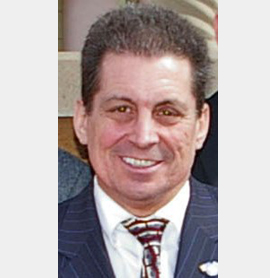
Ed Weiss
Mr. Weiss has a distinguished background in Power Quality Engineering for the past 33 years and is a published author, seminar speaker, holds two P.Q. related patents and is currently President of Applied Power Quality Solutions.
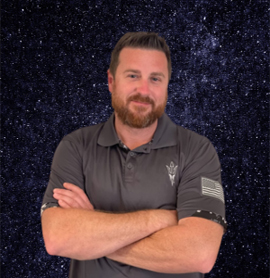
Kevin Styles
Kevin has over 23 years of experience in multiple areas of the HVACR industry. As service manager of Arizona's Dukes of Air, he leads a team of HVAC technicians, offers advanced technical training, and ensures personnel can deliver quality customer service. Kevin's extensive knowledge of residential air conditioning and commercial and industrial refrigeration allows him to pass on his knowledge through valuable technical training and by building on customer relation skills.
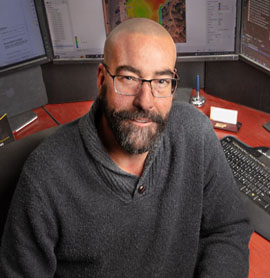
Dave Inman
With over two decades of experience in the lighting industry, Dave Inman brings a wealth of expertise to his role as specifications and employee development manager. His primary responsibilities include design, sales support, and promoting employee growth. Dave's unique contributions, including the design of a horticultural lighting fixture, have been recognized by the industry. His active involvement in professional associations, including membership in NAILD's sustainability committee and serving on the events' committee for the Phoenix Chapter of the IES, underscores his commitment to the industry's growth and sustainability.
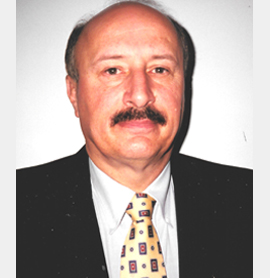
Vic Pietkiewicz
Mr. Pietkiewicz has over 45 years of experience in the engineering and construction industry. He is the Owner of Dove Valley Services, LLC a consultant to the construction industry. Previously he owned his own air-conditioning company. Many of his years included creating training programs for mechanical and electrical engineers, managers, estimators, construction workers, and technicians.
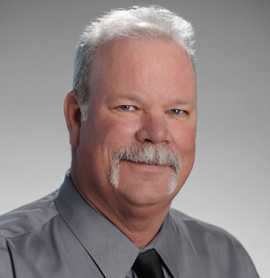
Mark D. Cook
Mark is an Electrical Education Specialist at Faith Technologies University and has been in the electrical trade since 1978. His present role is providing CEU classes as well as exam prep and arc flash classes. He completed his apprenticeship through Associated Builders and Contractors (ABC), and earned his first journeyman certification in 1987. Mark spent time in the industry working in both high-voltage and low-voltage residential, commercial and industrial occupancies. He also owned his own business from 1994 until accepting a position with Faith Technologies in 2015. He was an adjunct instructor for Independent Electrical Contractors (IEC) of AZ while teaching for the Electric League of Arizona. Mark holds a Wisconsin Master Electrician license with the Inspector adder, as well as a Washington State Journeyman license.
Mark recently passed the 7-hour Washington State Administrators exam and was appointed to Code-Making-Panel #2 in April of 2020. He also writes monthly code articles for The Electric Times.
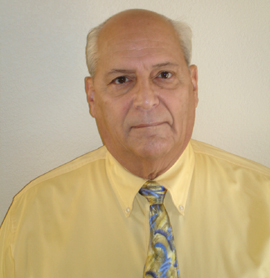
Marc Ramirez
Marc Ramirez has worked in the electrical industry for over 50 years. He owned and operated Mr. Electric Service Co., Inc. located in Hicksville, New York focusing primarily on service, sold the company and retired in 2001. With over 40 years of business experience in service operations management, he was recruited by Hatfield-Reynolds Electric, an IES Company, as V.P. of Service Operations from 2001 - 2008. He has been an adjunct faculty member of Gateway Community College teaching the third year Electrical Apprenticeship Program for the IEC Arizona Chapter from 2006 till 2017 and is a member of the IEC Safety & Codes and Standards Committee. He served as principle member of the NFPA National Electrical Code Panel 17 from 1993 to 2014, and an OSHA Authorized Construction 10/30 hour Trainer.
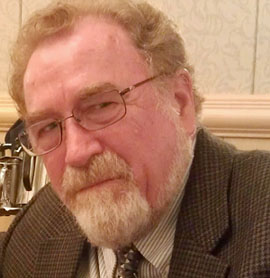
Mark Ode
Mark is an Electrical Education Specialist at Faith Technologies University and has been in the electrical trade since 1978. His present role is providing CEU classes as well as exam prep and arc flash classes. He completed his apprenticeship through Associated Builders and Contractors (ABC), and earned his first journeyman certification in 1987. Mark spent time in the industry working in both high-voltage and low-voltage residential, commercial and industrial occupancies. He also owned his own business from 1994 until accepting a position with Faith Technologies in 2015. He was an adjunct instructor for Independent Electrical Contractors (IEC) of AZ while teaching for the Electric League of Arizona. Mark holds a Wisconsin Master Electrician license with the Inspector adder, as well as a Washington State Journeyman license. Mark recently passed the 7-hour Washington State Administrators exam and was appointed to Code-Making-Panel #2 in April of 2020. He also writes monthly code articles for The Electric Times.
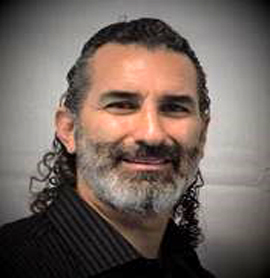
Derrick Denis
Derrick A. Denis is an internationally recognized practitioner, inventor, educator, author, and volunteer with over 32 years in the industry. He has provided professional industrial hygiene (IH), environmental health and safety (EH&S), infection control (IC), and indoor environmental quality (IEQ) services domestically and abroad for over 32 years. He is a sought-after presenter and instructor, who has provided hundreds of educational sessions and classes for associations around the world. He has appeared as a subject matter expert on television programs, been interviewed on radio talk shows, written and headlined educational videos, been quoted in major & local newspapers, authored many industry articles, and been published in peer-reviewed scientific literature. He has long history of volunteerism has included positions on numerous Boards of Directors for IEQ Industry Organizations (e.g. Indoor Air Quality Association (IAQA), Environmental Information Association Arizona Chapter (EIA-AZ), American Council for Accredited Certifications (ACAC), etc.). He has been at the helm as Senior Vice President for Clark Seif Clark, Inc. (CSC), an environmental consulting and industrial hygiene testing firm. He is an inventor of, and patent holder for, Sewer Gas Solutions®, a pourable product that inhibits evaporation of water from plumbing traps (p-traps), thereby preventing sewer gas and sewer pest infiltration into buildings. www.sewergassolutions.com. He is the inventor of the disposable fit test hood. He is a renowned impartial expert in insurance and litigation disputes (composing declarations, providing depositions, and testifying in trials, etc.) for both plaintiffs and defendants.
Register online today!
It's environmentally friendly. It's secure. Register, withdraw, or make payments for a class anytime and anywhere.